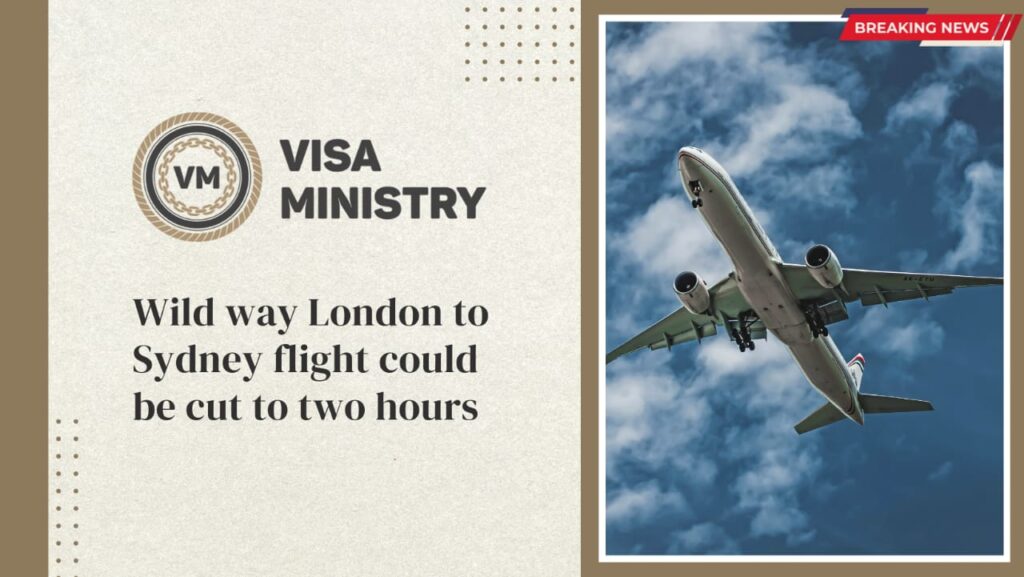Within the next ten years, Australian visitors may be able to fly to London in just two hours, but there is a caveat.
In under two hours, Australians may be able to travel to Europe within the next ten years, suggests new research.
The hitch is that they must go through space in order to reduce the journey time by around 20 hours.
According to the London-based daily The Times, a new study financed by the UK’s Civil Aviation Authority (CAA) is investigating the impacts of suborbital space flights, in which passengers would be launched into space before falling to their destination.
“Commercial suborbital space flights are now available for tourism and scientific research, and are ultimately anticipated to mature into extremely fast point-to-point travel, e.g. London to Sydney in less than two hours,” according to the study, which was published in the peer-reviewed scientific journal Aerospace Medicine and Human Performance.
While the suborbital flights provided by Sir Richard Branson and Jeff Bezos’ space tourism firms, Virgin Galactic and Blue Origin, are now very pricey (more than $655,000 a seat), authorities believe the trips will be “accessible to anybody” in the future, according to The Times.
For the purpose of the study, 24 “healthy” individuals between the ages of 32 and 80 experienced the same G-forces as would be experienced during the launch and descent of a suborbital space mission.
The G-forces peaked at 6G during descent for 10 to 15 seconds, which is six times the normal force of the Earth’s gravity. One G is equal to the force of gravity on Earth.
One of the 24 individuals temporarily lost consciousness, but no long-term harm resulted.
According to Dr. Ryan Anderton, the CAA’s medical lead for space travel, visitors on upcoming suborbital space missions wouldn’t need to be as physically strong as astronauts and go through years of rigorous training.
For the majority of travellers, physiological reactions are probably innocuous, he added.
Dr. Anderton did mention that experiencing strong G-forces might be hazardous due to several medical conditions.
According to him, “that’s not necessarily going to present a problem and there isn’t a detrimental effect on the long run, even for older people.”
The goal of the research is to identify those who could be more vulnerable and what we might need to test them for.
After a final four-person test trip in late May, Virgin Galactic plans to undertake its first commercial space voyage in late June. The cost of each ticket is around $670,000.
Blue Origin has previously carried out paid spaceflights for clients. A single ticket brought in $US28 million ($A41.8 million) at auction.
Source: escape
